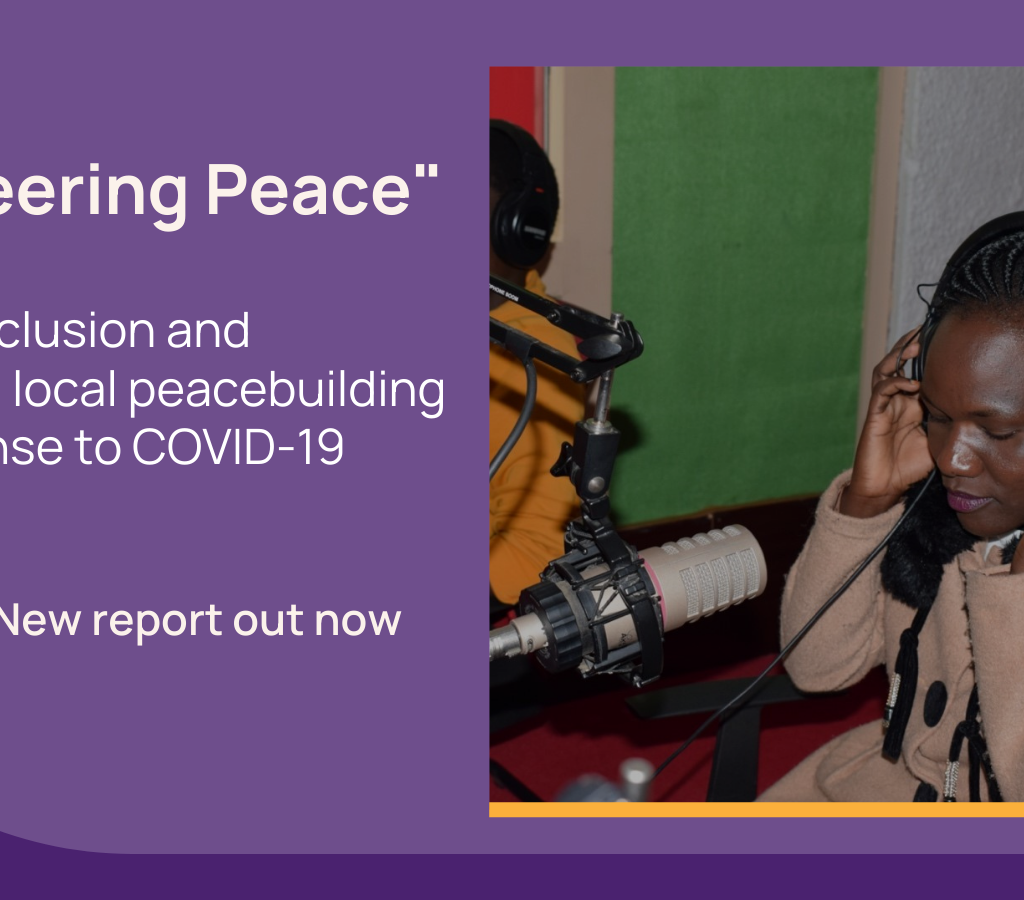
The Pioneering Peace Report: A call for ation to advance local peacebuilders’ digital inclusion
By Christian Cito, Programme Advisor, CSP
The COVID-19 pandemic has considerably impacted our lives and continues to exert significant pressure on how we interact as humans. For local peacebuilders in fragile contexts, the pandemic has also severely disrupted locally-led peacebuilding, short-circuiting needed funding to support community-level peacebuilding efforts, and increasingly making it difficult for initiatives depending on face-to-face interactions to carry on. Owing to the need to support local peacebuilders to adapt their work in this uncertain time, in 2020, Shift Power for Peace, a collaborative initiative between Conducive Space for Peace, Humanity United, and Peace Direct carried out a series of online consultations with over 400 local peacebuilders from across the world. During the consultation, the peacebuilders expressed a pressing need for access to technological tools, knowledge, and other resources to digitally adapt their peacebuilding work despite the pandemic.
In response to this, Shift Power for Peace launched the Digital Inclusion Fund, which has enabled access of local peacebuilders to 233 small grants to purchase tech equipment, software, and internet access. The recently released report, Pioneering Peace: Digital Inclusion and Adaptation in Response to COVID-19, sheds light on the main achievements, lessons learned, challenges, and opportunities faced by the Digital Inclusion Fund. Besides, the report also provides key recommendations for future digital support for local peacebuilders and communities working on advancing peace during and beyond the pandemic.
To complement the Fund, Conducive Space for Peace’s entry point was starting an online platform to foster dialogue and information-sharing among peacebuilders in different contexts on ways they are coping with the pandemic. With over 500 users from 70 countries, the online platform has also facilitated networking among actors across different thematic and regional focuses and has enabled platform users to access two introductory digital peacebuilding courses developed by Build Up to enhance confidence and capacities to use digital technologies for peacebuilding. As the facilitator of the online platform, I have particularly appreciated the sense of community that users created for each other over time – showing solidarity and engaging with one another’s peacebuilding efforts amidst the pandemic.
While it is evident that there is a need to support greater digital inclusion of local peacebuilders, CSP also recognizes challenges facing the digitalization of peacebuilding. Indeed, the pandemic has created an over-reliance on digital technologies forcing us to run most aspects of our lives in virtual spaces. However, digitalizing our lives also comes with a cost, including difficulties to build trust and connect at a human level. Throughout the past year, it has become increasingly evident that physical encounters cannot fully replace virtual ones in the pursuit of building peace.
Additionally, CSP is also aware of the still large numbers of local peacebuilders in remote areas who are excluded from digital peacebuilding opportunities and face language and capacity obstacles to using current digital tools. In this sense, fostering digital inclusion is not just a matter of providing more access to peacebuilders to digital technologies. It is also about developing innovative digital solutions that address structural limitations of digital peacebuilding to even the playing field for everyone and enable meaningful and equitable digital inclusion of local peacebuilders, especially those most excluded. Moving forward, it is toward this broader aspiration that CSP hopes that this report will stimulate funding support to not only meet local peacebuilders’ immediate digital needs during and beyond the pandemic but also prompt a further exploration of how the digital space influences existing power inequalities. Additionally it is our hope that the lessons learned from providing small grants to local peacebuilders can inspire more funders to find avenues for direct support for the much needed work that they are doing.
